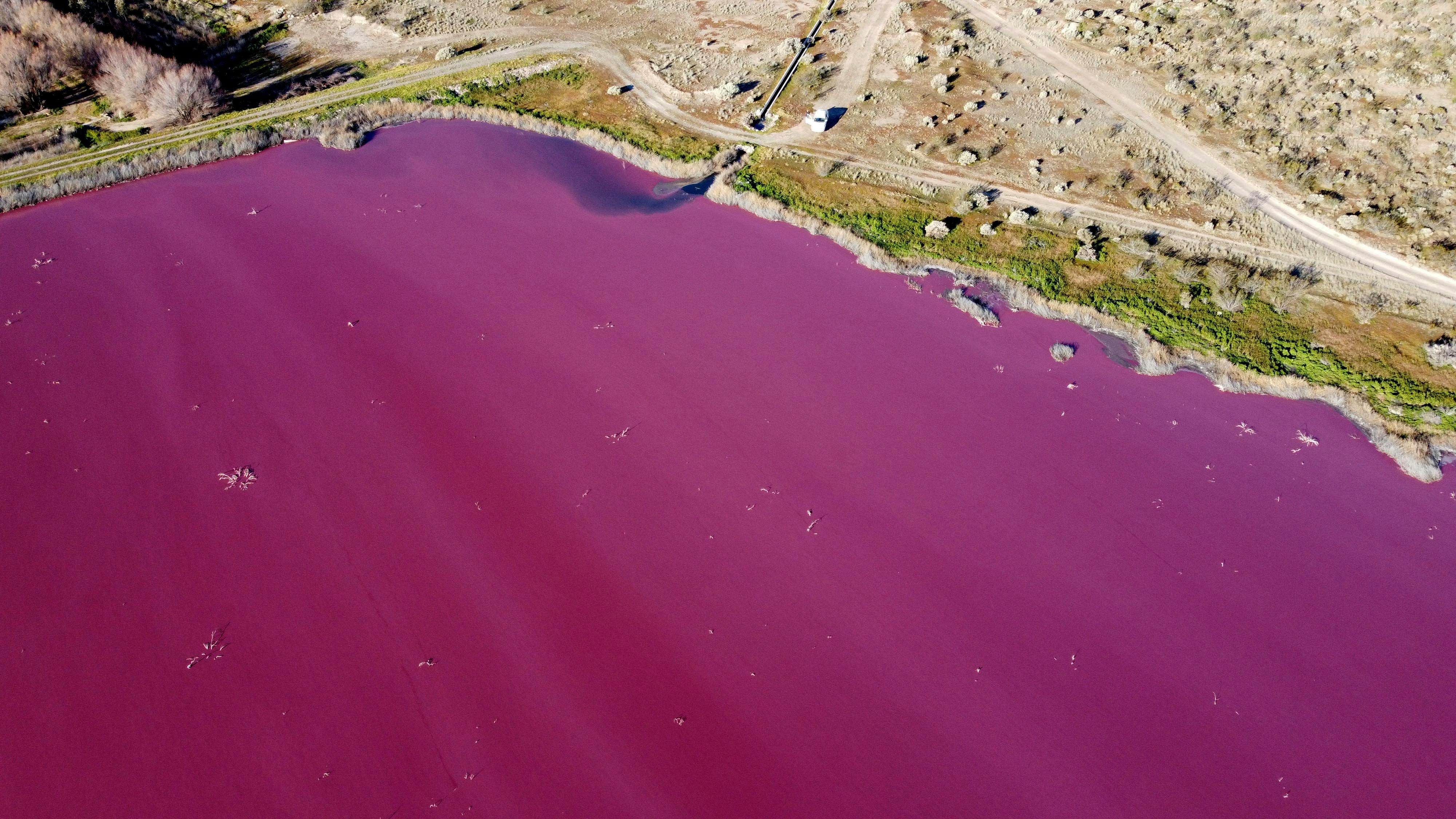
The green in the eyes of greedy corporations dumping waste from their factories has environmentalists in Argentina seeing red, because one of their lakes has turned pink. The Corfo Lagoon, a body of water in the Patagonia region, recently took on a bright pink hue that makes it look like a cotton candy lake. But experts warn the distinct coloration is the result of pollution from nearby fish factories that are putting residents at risk.
The lake started turning pink last week, according to a report from French news agency Agence France-Presse (AFP). The change in color, according to environmentalists, is the result of an excess of sodium sulfite. It is an antibacterial agent and chemical compound often used to preserve shellfish, which fish factories near Corfo Lagoon reportedly use on prawns that are to be exported. The problem: Officials in the Chubut province recently gave factories the OK to dump their waste in the lagoon, and the excess sodium sulfite in that waste has now polluted Corfo's water, as well as that of the Chubut River and other smaller bodies of water. Within days, the water turned pink.
While the lake's pink color is striking, Juan Micheloud, the environmental control chief for Chubut province, told AFP that it "does not cause damage and will disappear in a few days." But locals aren't convinced and — perhaps more importantly — would simply rather not be exposed to pollution, even if it is supposedly harmless. "It is not possible to minimize something so serious," resident Sebastian de la Vallina, told the French publication.
The lagoon itself isn't used as a water source — nor is it a swimming hole or anything else that people may interact with — but it is now a symbol of the reckless abandon of the fishing industry, which makes up much of the region's local economy. Officials gave the go-ahead for factories to dump their waste after residents — who have previously complained about the smell generated by these factories — blocked the path of trucks that typically transport the waste right through their city on the way to treatment plants, The Independent reported.
The law requires fish waste be treated before being dumped, and environmental activist Pablo Lada told AFP that locals are sick of "multi-million-dollar profit companies" taking that particular route, instead of paying to transport waste to a different treatment plant 35 miles away or build a facility nearby. "We get dozens of trucks daily, the residents are getting tired of it," Lada said.
Whether the water is actually safe might be up for debate (it's probably worth considering that the law requires the water to be treated for a reason), but the effects of the pollution is quite real. While the pink lake is perhaps the most eye-catching example of it, waterways across the world are being destroyed by industry. Polluted waters in Lebanon have resulted in the mass death of fish in lakes and rivers. Lake Uru Uru in Bolivia, once home to a massive flamingo population, has turned black from mining runoff and is now home to mountains of plastic waste.
Left alone, these bodies of water would sparkle in their own natural hues. Instead, they've been turned into dumping grounds. The color might catch our eye, but it's the cause that deserves all the attention.







